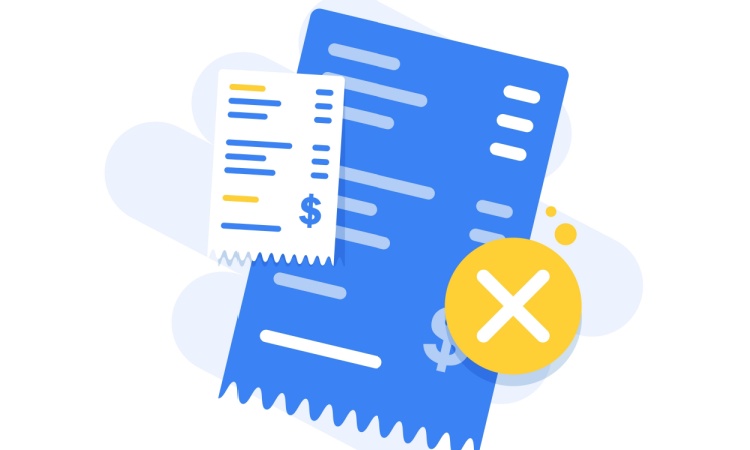How To Spot Billing Errors and Appeal in Health Insurance Claim
How To Spot Billing Errors and Appeal in Health Insurance Claim

Navigating health insurance claims can be tricky, especially when billing errors slip through unnoticed. These mistakes might lead to overcharges or even claim denials. Fortunately, you have the right to question these errors and appeal them if needed. Understanding how to spot and fix these mistakes can save you a significant amount of money and stress.
Let’s discuss how you can identify common billing errors and successfully appeal a health insurance claim.
Why Do Billing Errors Occur?
Billing errors can happen due to a variety of reasons:
• Human error during data entry
• Incorrect coding of treatments or procedures
• Duplicate charges
• Services that were never received are listed
• Miscommunication between your healthcare provider and insurance company
Common Billing Errors You Should Watch For
Here are some common mistakes to look for when reviewing your health insurance bill:
1. Duplicate Charges
Sometimes a procedure or consultation might be charged more than once.
2. Incorrect Procedure Codes
Each medical service has a specific code. If a wrong code is entered, the insurer might reject the claim or pay a lower amount.
3. Upcoding
This happens when a more expensive procedure is charged than the one that was actually performed.
4. Unbundling of Services
Some treatments are usually billed as a single package. If billed separately, it might increase the total cost.
5. Charges for Cancelled Services
Occasionally, services that were cancelled still appear on the bill.
Steps to Identify Billing Errors
1. Request an Itemised Bill
Always ask for an itemised copy of your healthcare provider's bill. This will clearly break down each service and cost.
2. Cross-check With Your EOB (Explanation of Benefits)
Your insurer sends an EOB after processing the claim. Match this with your itemised bill to ensure all services align.
3. Verify Medical Codes
If something looks odd, look up the CPT (Current Procedural Terminology) or ICD (International Classification of Diseases) codes.
4. Keep Records
Always maintain a file with all documents, including prescriptions, test results, and discharge summaries. These can help support your case during an appeal.
5. Consult Your Provider’s Billing Office
If you notice discrepancies, talk to the provider’s billing department before contacting your insurer.
How to File an Appeal for a Denied or Incorrect Claim
If you've found a mistake, here’s what you can do:
Step 1: Understand Why Your Claim Was Denied
Check the denial code on your EOB or the rejection letter. It usually includes a reason for the rejection.
Step 2: Gather Your Documents
You will need:
• A copy of the original bill
• The EOB
• Any supporting medical documents
• A letter from your doctor (if applicable)
Step 3: Write an Appeal Letter
Your appeal should be clear and concise. Include:
• Your personal details (name, policy number, etc.)
• Description of the error
• Reason for the appeal
• All supporting documents
Step 4: Submit Your Appeal
Send the appeal to your insurer through registered post or via their online portal. Keep a copy for your records.
Step 5: Follow Up
Health insurance companies usually have a timeline to respond. If you don’t hear back within that period, follow up.
Tips to Avoid Billing Errors in Future
• Always verify your details with the healthcare provider before and after the visit.
• Ask for clarification on any treatment or service given during your visit.
• Sign up for online health insurance portals to track your claims in real-time.
Know Your Rights
The Insurance Regulatory and Development Authority of India (IRDAI) allows you to file grievances with your insurer. If unresolved, you can approach the Insurance Ombudsman.
When Should You Escalate the Issue?
If your insurer continues to deny your claim unfairly, escalate the case:
• Write to the insurance company's grievance redressal officer
• File a complaint on the IRDAI Integrated Grievance Management System (IGMS)
• Approach the Insurance Ombudsman if no action is taken within 30 days
Conclusion
Spotting billing errors isn’t just about saving money; it is about ensuring you receive the correct care and reimbursement. Don’t hesitate to question charges or file an appeal. It is your right.
If you're in the process of selecting a new health plan, always opt for one that offers transparent claim settlement and robust customer service. Today, it is easier than ever to buy health insurance online and manage your policy efficiently.
Disclaimer: The above information is for illustrative purposes only. For more details, please refer to the policy wordings and prospectus before concluding the sales.
RELATED ARTICLES
How to File a Health Insurance Reimbursement Claim?
Health Insurance Claim Process: A Complete Guide
A Guide to Paying Health Insurance Premiums in Instalments










 Health Insurance
Health Insurance  Travel Insurance
Travel Insurance  Car Insurance
Car Insurance  Cyber Insurance
Cyber Insurance  Critical Illness Insurance
Critical Illness Insurance
 Pet Insurance
Pet Insurance
 Bike/Two Wheeler Insurance
Bike/Two Wheeler Insurance  Home Insurance
Home Insurance  Third Party Vehicle Ins.
Third Party Vehicle Ins.  Tractor Insurance
Tractor Insurance  Goods Carrying Vehicle Ins.
Goods Carrying Vehicle Ins.  Passenger Carrying Vehicle Ins.
Passenger Carrying Vehicle Ins.  Compulsory Personal Accident Insurance
Compulsory Personal Accident Insurance  Travel Insurance
Travel Insurance  Rural
Rural 











